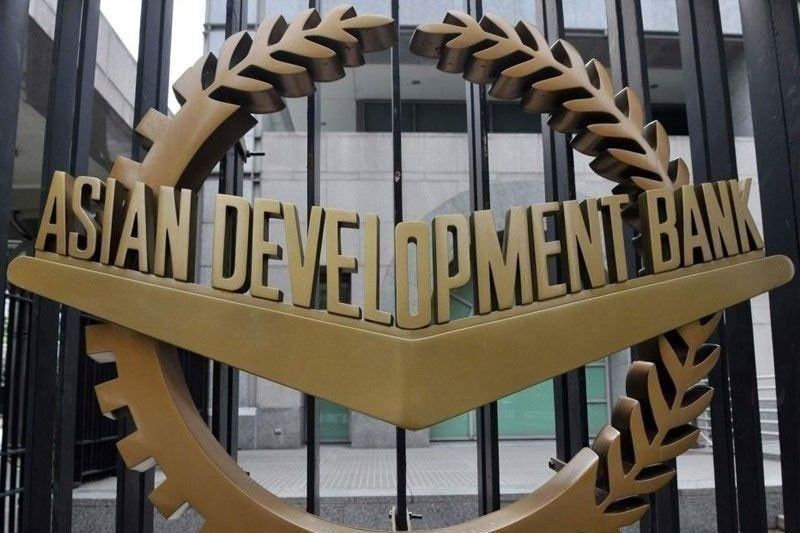ADB plans to lend $3.5 billion to Philippines this year

MANILA, Philippines — Manila-based Asian Development Bank (ADB) is planning to lend $3.5 billion or about P168.65 billion to the Philippines this year to help the country recover from the pandemic-induced recession.
During the Laging Handa briefing yesterday, ADB country director Kelly Bird said the multilateral lender remains committed in financially supporting the Philippines.
“This year, we have a robust lending program with the government. We’re looking at around $3 billion, some of which is to support infrastructure projects,” Bird said, adding that “the amount can be a good stimulus for economic recovery and also provide some of our policy-based lending which is budget support as well. ”
Based on the updated indicative lending pipeline for the Philippines for 2021, a total of $3.468 billion worth of projects will be financed by the ADB.
The bulk of the amount or $1.75 billion is for the South Commuter Railway Project or the Clark–Calamba Railway. The 148-kilometer urban rail transit line will run from New Clark City in Tarlac to Calamba with 36 stations.
Some $400 million each has also been set aside for local governance reform programs, facilitating youth school-to-work transition, and building up implementation for the Universal Health Care program.
Another $238 million will be lent for the Davao Public Transport Modernization Project, while $180 million is for Metro Manila Bridges Project. Another $100 million will be used to fund sustainable tourism development projects.
Just last Friday, the Philippines secured $400 million from the ADB for the procurement of safe and effective COVID-19 vaccines, a move critical to the country’s thrust toward economic recovery.
The latest ADB loan makes the Philippines the first recipient of the Asia Pacific Vaccine Access Facility (APVAX). The program aims to procure and ensure the delivery of COVID-19 vaccines to the country.
“We continue to have a firm and robust lending pipeline with the government this year and next year. We know that the pandemic carries a lot of unknowns particularly on the economy and the social sector,” Bird said.
“We are now moving from that relief stage from last year into the rebuild stage,” he said.
Further, Bird said co-financing with other multilateral banks is also on the table.
Last year, the Asian Infrastructure Investment Bank co-financed the fiscal response program. AIIB provided $700 million, while the government of Japan allocated $500 million. The ADB, on the other hand, has provided $1.5 billion, which contributed to the government’s wage subsidy and social protection programs.
“Future co-financing is always discussed with Department of Finance through a country operating business plan. Discussion is still ongoing in terms of co-financing with AIIB on infrastructure projects,” Bird said.
To support the country’s COVID-19 response last year, ADB also provided $3 million to procure emergency medical supplies and establish a COVID-19 testing laboratory and $5 million to support emergency food supplies to more than 162,000 vulnerable households in Metro Manila and nearby provinces.
Another $200 million was also allotted to help the government finance emergency cash transfers to poor households, and another $2 million to assist distance education during the pandemic.
In a separate report, ADB said a renewed focus on achieving the Sustainable Development Goals (SDGs) would be essential as countries seek to rebound from the pandemic.
The SDGs are 17 interlinked global goals designed to be a “blueprint to achieve a better and more sustainable future for all.”
“Achieving the SDGs will require vast sums of finance to be mobilized from the widest range of sources in support of the agenda at a time when governments face mounting pressure on their budgets and soaring public debt,” ADB president Masatsugu Asakawa said.
“In 2021, as we map a path to recovery from the pandemic, we must refocus on the SDGs. ADB’s investments must meet the highest standards of sustainable development and deliver real results that help countries realize the vision set out in Strategy 2030 and rebuild for the SDGs,” he said.
Last year was supposed to be the start of a decade of action to accelerate progress on the SDGs, but the pandemic threatened prospects for achieving the goals.
The Asia Pacific is already off track to meet the ambitious goals even before the pandemic began, with the crisis just pushed 162 million people in the region back into poverty, and economic growth in developing Asia contracted for the first time in 60 years.
“There has been limited progress on SDGs that protect the environment, and the region is at the front lines of the climate change crisis. There is a huge financing gap to make the SDGs a reality. A green, resilient, inclusive, and sustainable recovery from COVID-19 that aligns with the SDGs will be imperative,” ADB said.
- Latest
- Trending






























